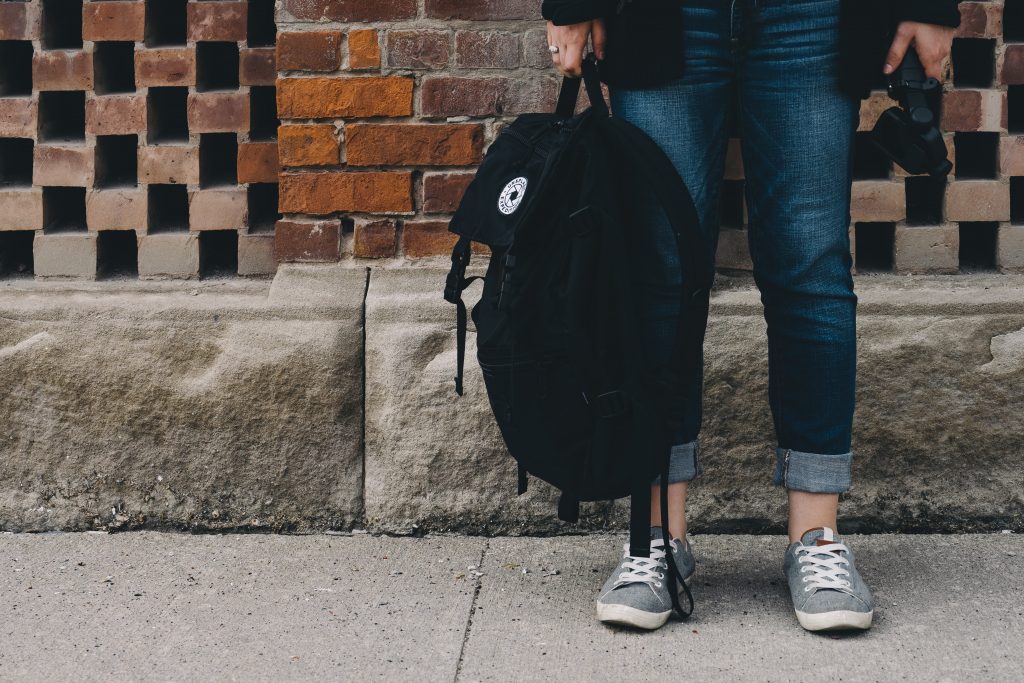
Help your child cope with back-to-school anxiety
Going back to school can be stressful for children and families, especially if the new year will bring big changes like switching to a new school or having more than one teacher. Children who learn and think differently can be particularly anxious about keeping up or fitting in.
We prepared this article to help you understand back-to-school anxiety. If your child is anxious or worried leading up to the start of school, we hope these tips can help.
Reasons children may be getting anxious or stressed
All children are different, and there is no simple explanation for why some are more anxious about going back to school than others. Let’s explore what can cause your child’s anxious feelings about school:
1. Fear of the unknown
This is especially common in children who go to school for the first time. But it can also include those who transition from primary to secondary school, for example. Children may feel anxious about a new building, a new school district, or having more than one teacher.
2. Making friends
If your child is generally more anxious or introverted, they may experience concerns about making friends, worry that they won’t get on with others, or that they don’t know anybody.
3. Bullying
A child who experienced bullying in the past may be anxious about returning to the place where their harassment took place.
They associate school with being bullied, and understandably, this makes them stressed and anxious. It’s important to get into the root of a problem, as bullying can seriously affect your child’s mental health and life as an adult.
4. Concerns about the workload and their abilities
Children who go to school for the first time or change school can feel particularly anxious about their skills and whether they’d be able to do well in school.
It’s important to note that a child who experiences other forms of anxiety is more likely to also develop school anxiety.
Signs of back-to-school anxiety in children
While anxiety regarding returning to school is common, it’s also not something that should be ignored. For this reason, you need to be able to identify when your child is struggling with stress and anxiety. Watch for the signs like:
- Appearing more clingy than usual
- Being more restless and fidgety
- Complaining of stomach aches
- Displaying changes in sleeping and eating habits
- Negative thoughts or worries
- Getting upset or angry more quickly
- Having bouts of unexplained crying
- Struggling to concentrate
How can you help?
If you observe any of the above behaviour changes, try to be patient and observant. Your child may need time. Older children may want to talk about their worries, so be there for them.
Try to stay calm and avoid getting angry or upset if your child gets into angry outbursts or tantrums. These are attention-seeking behaviour. It’s best to ignore them, and then praise your child when they calm down. Later, ask when would be a good time to talk about why your child was upset.
Often the best way to address stress and anxiety is to encourage your child to talk. Listen without judgement and validate their feelings.
Ask them questions like, “Is there anything in particular about this school year that’s worrying you?”, and offer your support. Just like adults, children often simply need to express their feelings to feel better.
Another great way to ease some of your child’s anxiety is to get your home ready for the transition. Encourage your child to help you plan and organise their homework area and plan school lunches ahead of time. This can help make them feel more in control and relieve some of their anxious feelings.
Here are other things you can do:
- Start switching into school mode
Don’t wait until the last minute with setting the proper schedules and routines, as this may increase your child’s anxiety. Start practising morning and evening routines ahead of time. That includes school wake-up times, bedtimes, and mealtimes.
- Get outside
Apart from being beneficial for everyone’s physical health, outdoor activities are proven to battle stress and anxiety too. Go out and enjoy the end of summer together. A simple walk in the park or playing a ball together can help your child to be in the moment and not overthink the fast-approaching first day in school.
- Give your child choices
To give your child a sense of control and excitement about school, let your child pick out what to wear on the first day of school. Pack them a special snack of their choice, or have your child choose a favourite meal for dinner for that night.
- Talk about good memories from previous years
Highlight these positive moments and use them as a reminder that school can be rewarding and fun.
- Let them know that you believe in them
Projecting a sense of confidence and understanding may seem like a small thing, but when children know that you know what they are going through, it can make a big difference. Let them know that you believe they will be successful in school.
- Show them you are here for them
Find a time to talk when your child is relatively calm and unoccupied. Talk to them about their worries and fears, and express that you are there for them and to help solve their problems.
- Help them speak up about their needs
Sometimes children struggle with expressing their feelings – and that’s ok. By asking questions and letting them talk about their needs without judgement, you help your child gain a sense of control and confidence needed to battle the anxiety and stress.
If your child’s anxiety lasts longer than two weeks and interferes with their daily life, this could be a sign of an anxiety disorder. Talk to your child’s doctor about your concerns.


